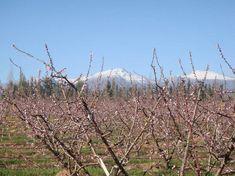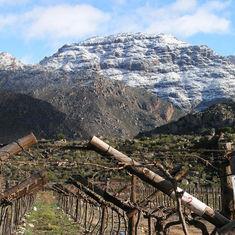

A succession of massive cold frontal systems with high wind speeds and rough seas have brought more rain, snow and icy conditions to South Africa, in particular the Western Cape, over the last three months than the region has seen in a number of years.
The extreme weather patterns have spelled good news for the deciduous fruit industry, as the rain is filling dams and replenishing underground water sources to provide enough water for irrigation during next year’s dry summer months, when the fruit will be harvested.
On average, dams in the Western Cape are already 87 per cent full, compared to 66 per cent at the same time last year. The cold is also very good for the dormancy periods needed by deciduous fruit trees and vines that require a certain number of cold units during winter.
Over the past two decades, some top-fruit production regions in the Western Cape, most notably the Elgin valley, have experienced production problems due to orchards not receiving enough cold units, so by all accounts, producers are grateful for this good, old-fashioned winter.
“This weather is excellent for our orchards”, said Robert Graaff of Graaff Fruit in the Ceres Valley. “When spring arrives, our trees will emerge from their winter dormancy in a good condition. This should allow for an even flowering and set period, essential for a good harvest.”
Good rains during 2006 and this winter’s rains have also come as welcome relief after the serious drought experienced in the Western Cape during the 2004-05 harvest.
However, the weather has created a few headaches for the citrus industry. Very heavy rains in the Olifants River area in the Western Cape created some flooding, leaving the area waterlogged, and this interrupted harvesting. “In 10 days in June, we received as much rain as we sometimes receive in a year,” said Martli Slabber, chairperson of the Citrus Growers’ Soft Citrus Focus Group. Fortunately, most fruit had already been harvested, and only a small portion was affected.



